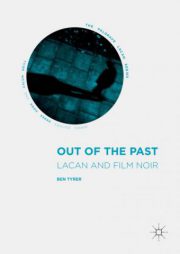There is little doubt today, that film noir research and the spread and development of psychoanalysis have boosted academic Film Studies to a large extend; for a short period in the early 1970s, the psychoanalytical approach to Film Studies even seemed to be the only method that brought results.
 For film and psychoanalysis had a long history of cooperation and shared many links to the other discipline. Even so, already in the mid-1970s a number of influential writers and film scholars decided that this method was only obscuring matters and thus responsible for a dogmatic and unnecessary complicated approach, what led to the slow abandonment of the psychoanalytical angle. This development in academic writing on film continued until the 1990s, when the psychological approach received less and less attention.
For film and psychoanalysis had a long history of cooperation and shared many links to the other discipline. Even so, already in the mid-1970s a number of influential writers and film scholars decided that this method was only obscuring matters and thus responsible for a dogmatic and unnecessary complicated approach, what led to the slow abandonment of the psychoanalytical angle. This development in academic writing on film continued until the 1990s, when the psychological approach received less and less attention.
With that shift of theory in mind, the present study at first makes little sense; for the high-time of that particular approach seems to be long gone. Why promote it now for another time?
Tyrer intends that his book would „seek to revisit that intersection of psychoanalytic and film theories first articulated in the 1970s, to plot a new trajectory – alongside that of Slavoj Zizek or Todd McGowan – for Lacan and cinema.“
This is not an easy study to read; for Tyrer, a lecturer in Film Studies at King’s College London, inspects the last 70 years of writing on film noir with the help of Lacan’s theories. And he aims to establish a new model of Film Studies, based on Lancan’s research and conclusions, something that (one day) could be labeled Lacanian Film Studies.
In spite of that, many noir movies on the surface actually deal with psychoanalysis, psychological explanations, war trauma and a popularized version of psychoanalysis that seemingly entered the vocabulary of that time relatively naturally. And in some movie plots, there even are quite a few doctors and physicians who use methods and cures from psychoanalysis to control and influence other characters.
Tyrer also sees important aspects of the idea of film noir style in its uses of interacting forms of the present; that in his eyes actually then is a “retroactively defined” past. By analyzing neo-noir films, he sees evidence for the “… integration of the idea of noir into mainstream culture to the extent that the concept now functions as genre. Moving forwards, I demonstrated how noir came to function as an empty signifier that is filled out by the idea of noir with each iteration of film noir. It is made to mean anything, in any context […].”
He then locates a strong interrelatedness of Lacan’s psychoanalytical approach to experience or “The past”; which in his opinion can actually be altered, hence escaping a stigmata of many film noir characters, namely fatalism and the feeling of doom. His investigation, he states “thus ended …. with the structure and temporality of retroaction and an interdependent relation where the past does indeed determine the present, but the present itself determines what such a past can be. […] While Jeff Bailey [a character played by actor Robert Mitchum in the movie “Out of the Past”] indeed cannot escape his past and it is those revenants from out of the past that are his undoing, it is in fact only in the absence of psychoanalysis that we are doomed to repeat our previous mistakes.”
This title may appeal to noir specialists and students of film, while the cited theories of Lacan not always manage to convince with respect to film analysis. Partially because some conclusions found here only function properly if the entire film noir, the plot, the dialogue and every flashback had originally been designed with Lacan’s bulk of writings in mind. Nevertheless, here is an interesting study . For founding the analysis of a genre on the theory of a single scientist (of an altogether different discipline) is something else. Even more so, since Lacan’s writings are not at all easily comprehensive.
The title is part of the Palgrave Lacan Series, that is devoted to various aspects of his theories and shall represent new authors that deal with Lacanian thought.
Review by Dr. A. Ebert © 2016
Ben Tyrer. Out of the Past: Lacan and Film Noir (The Palgrave Lacan Series). Palgrave Macmillan, 2016, 291 p.
